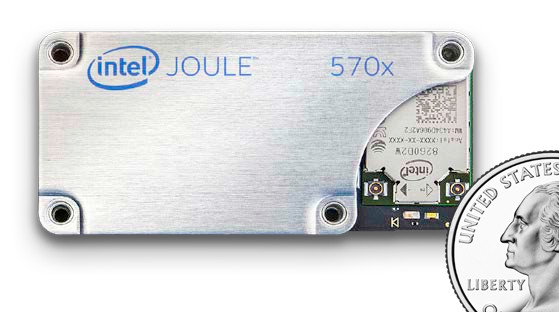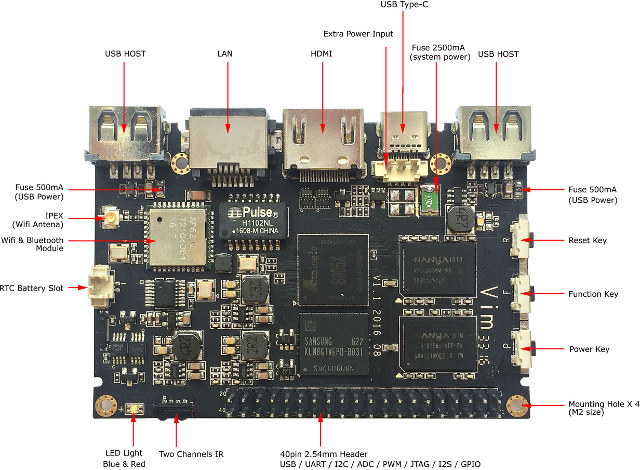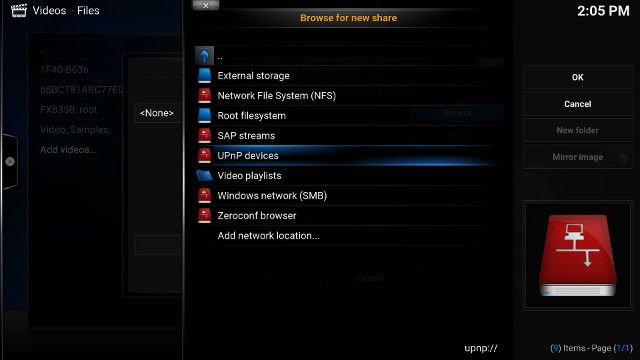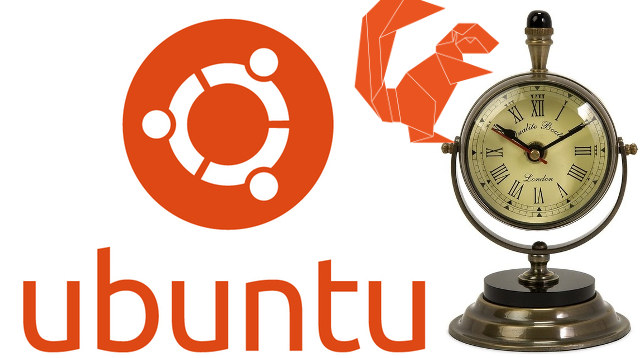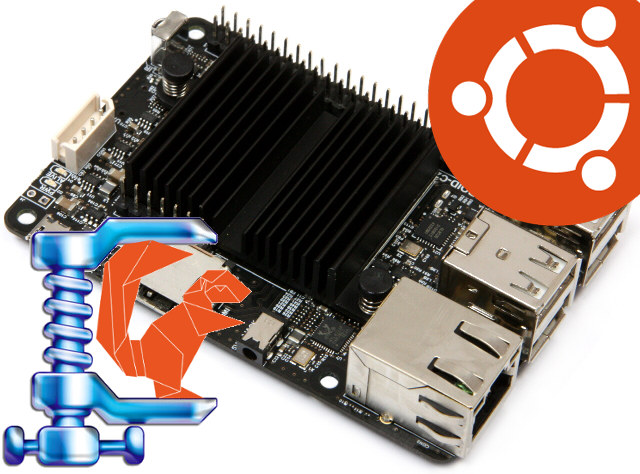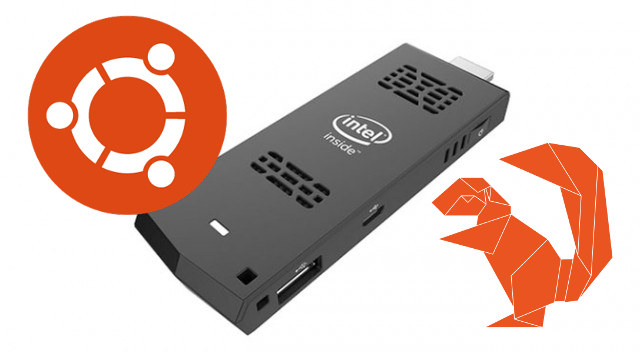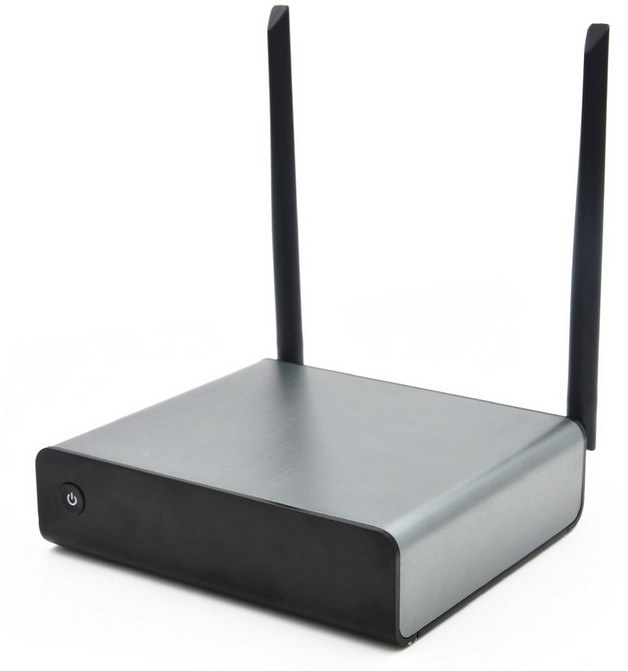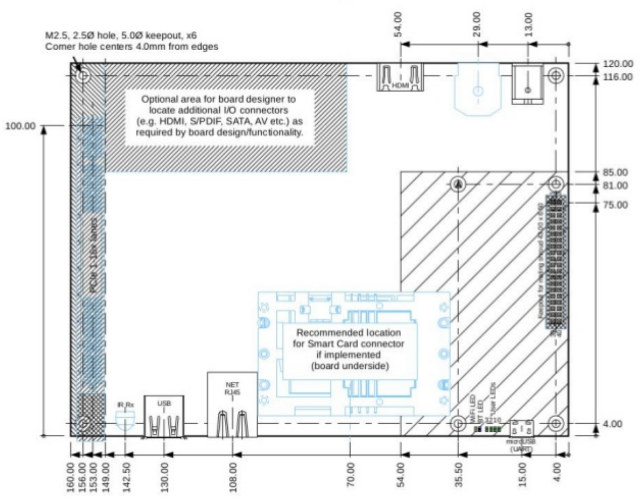As the Intel Developer Forum 2016 is now taking place in San Francisco, Intel has unveiled the Joule Compute Module and development kit targeting IoT applications. The module is not for low cost and low power sensor nodes however, as it features a powerful quad core Atom processor running at 1.5+ GHz, so it more suited to IoT gateways, or other application requiring lots of processing power to handle sensor data. Two models of the Joule module have been introduced: Intel Joule 570x platform SoC – Intel Atom T5700 64-bit quad-core processor @ 1.7 GHz / 2.4 GHz (Burst frequency) with Intel HD Graphics with 4K video capture and display System Memory – 4GB LPDDR4 RAM Storage – 16GB eMMC memory Connectivity – 802.11ac Wi-Fi with MIMO and Bluetooth 4.1 Other interfaces – USB 3.0, MPI CSI and DSI interfaces, and multiple GPIO, I2C, UART interfaces Intel Joule 550x platform […]
SZTomato TVI Amlogic S905X Development Board to Support Android 6.0, OpenELEC 7.0, and Ubuntu 16.04
Shenzhen Tomato has been selling Android TV boxes for a few years now, but one of their next product will be a development board based on Amlogic S905X processor with 8GB flash, 2GB RAM, and the usual 40-pin Raspberry Pi header. SZTomato TVI development board specifications: SoC – Amlogic S905X quad core ARM Cortex-A53 @ up to 2.0GHz with penta-core Mali-450MP GPU @ 750 MHz System Memory – 2GB DDR3 (1GB or less as option) Storage – 8GB Samsung eMMC flash (other capacities as option) + micro SD slot Video & Audio Output – HDMI 2.0a up to 4K @ 60 Hz Connectivity – Fast Ethernet port, 802.11 b/g/n WiFi and Bluetooth 4.0 (Ampak AP6212) with IPEX connector USB – 2x USB 2.0 host ports with 500mA fuses, 1x USB type C port for power and USB devices (no video) Expansion header – 40-pin Raspberry Pi compatible header with USB, […]
How-to Setup a DLNA/UPnP Server in Linux for Smoother Video Streaming with Kodi and Other Media Players
I’m normally playing videos from a SAMBA share installed in a Ubuntu PC to play files from Kodi in Android TV box reviews, but sometimes when I use 10/100 Ethernet, or worse WiFi local “streaming” may not be as smooth as possible. SAMBA is convenient because of access control and read write operations, but if you want to get a bit more performance, you may switch to NFS instead, or like I’ve going to show you here to a DLNA / UPnP server to stream videos locally from Kodi 16.1. There are several options, but MiniDLNA is lightweight compared to MediaTomb, so it will also run on lower end hardware like cheap ARM Linux development boards like Raspberry Pi, Orange Pi, or NanoPi NEO without taking too many resources. Installation is very easy in Debian / Ubuntu distributions, and I supposed this should also work with Windows Subsystem for Linux […]
How to Resolve Slow Boot Times in Ubuntu 16.04
I’ve recently upgraded my machine from Ubuntu 14.04.4 to Ubuntu 16.04.1, but while my computer used to boot in about 40 seconds, after the upgrade boot times increased considerably to 2 to 3 minutes. The first easy check was to look at dmesg:
|
1 2 3 4 5 |
[ 9.776990] usb 3-4.4.2: pl2303 converter now attached to ttyUSB0 [ 11.510201] floppy0: no floppy controllers found [ 98.444400] vboxdrv: Found 8 processor cores [ 98.460319] vboxdrv: TSC mode is Invariant, tentative frequency 4026996449 Hz [ 98.460321] vboxdrv: Successfully loaded version 5.0.26 (interface 0x00240000 |
There’s a bit 87 seconds gap between checking for the floppy, and VirtualBox drivers loading. So there’s definitely an issue here, but the log does not exactly give a clear queue. I’ve read you could use systemd-analyze to find which process(es) may be slowing down your computer at boot time:
|
1 2 3 4 5 6 7 8 |
systemd-analyze blame 8.121s apt-daily.service 7.658s NetworkManager-wait-online.service 931ms docker.service 710ms winbind.service 695ms nmbd.service 647ms samba-ad-dc.service 543ms ModemManager.service |
Two processes are taking close to 8 seconds, but those 16 seconds still do not explain why it takes 2 minutes more to boot…Eventually, I realized systemd-analyze has a few more tricks up its sleeves:
|
1 2 3 4 |
systemd-analyze Startup finished in 5.784s (kernel) + 3min 651ms (userspace) = 3min 6.425s systemd-analyze plot > test.svg |
The first command shows there’s no problem with the kernel itself, and something is slow in user space. The […]
Minimal Ubuntu 16.04 Image for ODROID-C2, and C1/C1+ Boards, Ubuntu Core Image for Bubblegum-96 Board
If you’ve been wanting minimal Ubuntu distributions for your server, IoT, or other headless projects, there are some good news from Hardkernel with the release of a minimal Ubuntu 16.04 image for ODROID-C2 and ODROID-C1+ boards, and Canonical has recently announced Actions Semi S900 based BubbleGum-96 board was getting support for Ubuntu Core distribution. If you’re using an ODROID board you can download ubuntu64-16.04-minimal-odroid-c2-20160803.img.xz (196MB) firmware, which become 1.7 GB once uncompressed and flash it 2GB or greater micro SD card. After Raspberry Pi 2 and Samsung Artik 5/10, Bubblegum-96 is the third officially supported board that can run Ubuntu Core. You can download the 3.63GB beta image and instructions to flash it from an Ubuntu 16.04 machine on Mega. Bugglegum-96 is a 96boards compliant development board based on an quad core Cortex A53 processor with 2GB RAM and 8GB flash manufactured and sold by ucRobotics for $89. Jean-Luc Aufranc […]
Ubuntu 16.04.1 ISO Images Released for Intel Atom Bay Trail & Cherry Trail Compute Sticks
Canonical has recently released Ubuntu 16.04.1, which is now considered stable enough to update from Ubuntu 14.04.04 LTS, and while I could do that easily on my main machine using update-manager, upgrading to Ubuntu 16.04 on Intel Atom “Bay Trail” and “Cherry Trail” devices is a bit more complicated if you need audio & wireless networking (WiFi/Bluetooth) support since the kernel needs to be patched, and on top of that recent Linux kernels are not stable on such platforms without some extra hacks. Linuxium has done all the hard work, and created Ubuntu 16.04.1 ISO images for Intel Atom Compute Sticks with working audio, WiFi, Bluetooth, and “C-state” patchsets to avoid freezes. The images may also work on other devices, but this has not been tested so far. If you want to give it a try, you can download ubuntu-16.04.1-desktop-linuxium-ics.iso, and flash it to a USB drive with Rufus (Windows) […]
Star Cloud PCG61 Intel Celeron “Braswell” Ubuntu 16.04 / Windows 10 Pro Mini PC Features Up to 8GB RAM
MeLE showcased their PCG61U mini PC powered by an Intel Celeron N3150 processor and running Ubuntu last April at the Hong Kong Electronics Fair. The company has now launched Star Cloud PCG61 on Aliexpress where it sells for $149 and up with either Windows or Ubuntu. Star Cloud PCG61 specifications: SoC – Intel Braswell Celeron N3150 quad core processor @ 1.60/2.08 GHz with 12 EU Gen8 Graphics(6W TDP) System Memory – None, 4 or 8GB DDR3L Storage – 0, 64 or 128 GB mSATA SSD (upgradeable up to 256GB), micro SD card up to 512GB Video Output – HDMI 1.4 & VGA Audio – HDMI, 3.5mm microphone and earphone jack Connectivity – Gigabit Ethernet, 802.11 b/g/n & 802.11ac WiFi, and Bluetooth 4.0 USB – 2x USB 3.0 ports, 2x USB 2.0 ports Misc – Power button, Kensington security lock, reset BIOS button, mini PCIe slot (likely already used by wireless […]
96Boards Gets a TV Platform Edition Targeting $50 Mid-range Boards, $99 High-end Boards
96Boards was born as a hardware and software standard with Consumer (CE) & Enterprise Editions (EE), with different form factors with the latter focusing on server boards, but with similar software requirements requiring recent and mostly open source software. The consumer edition was also split into “Standard” and “Extended” editions, which the latter allowing for larger boards with more features, while the Enterprise Edition has its own larger format, as well as an option for micro-ATX form factor. I’ve just learned that a “fifth” 96Boards standard has been worked on with 96Board TV Platform for Home Gateways, OTT Streaming boxes, and TV boards with prices target of $50 or lower for mid-range boards, and $99 or lower for high-end boards. 96Boards TV Platform hardware requirements: Dimensions – 160 x 120 mm (EE Standard form factor) RAM – 1GB minimum; 2GB recommended Flash – 8GB eMMC minimum WiFi – 802.11 g/n […]


